
Stari Grad: The Heartbeat of Niš
Stari Grad, or 'Old Town,' is the historical and cultural hub of Niš, Serbia. Walking through its cobbled streets is like stepping back in time. The area is dotted with ancient architecture, quaint cafes, and bustling markets that exude an old-world charm. As you wander, you'll encounter stunning landmarks like the Niš Fortress, a well-preserved structure from the Ottoman era that offers a glimpse into the city's storied past. The neighbourhood is also home to the lively Kazandžijsko sokače, or Tinker’s Alley, a pedestrian street filled with traditional Serbian restaurants, artisan shops, and vibrant nightlife. This area is perfect for both daytime exploration and evening relaxation. Don't miss the opportunity to try local delicacies such as ćevapi and rakija in one of the many family-owned eateries. Stari Grad is not just about history; it’s a living, breathing part of Niš where the past and present seamlessly blend. From street performers to art galleries, there’s always something happening that captures the spirit of Serbia. Whether you're a history buff, a foodie, or just someone looking to soak up local culture, Stari Grad has something special for everyone.
Local tips in Stari Grad
- Wear comfortable walking shoes to navigate the cobblestone streets.
- Visit Niš Fortress early in the morning to avoid crowds.
- Try the local ćevapi and rakija at a family-owned restaurant in Kazandžijsko sokače.
- Explore the area both day and night to fully experience its vibrant atmosphere.
- Keep some cash handy, as many small shops and cafes do not accept credit cards.
Stari Grad: The Heartbeat of Niš
Stari Grad, or 'Old Town,' is the historical and cultural hub of Niš, Serbia. Walking through its cobbled streets is like stepping back in time. The area is dotted with ancient architecture, quaint cafes, and bustling markets that exude an old-world charm. As you wander, you'll encounter stunning landmarks like the Niš Fortress, a well-preserved structure from the Ottoman era that offers a glimpse into the city's storied past. The neighbourhood is also home to the lively Kazandžijsko sokače, or Tinker’s Alley, a pedestrian street filled with traditional Serbian restaurants, artisan shops, and vibrant nightlife. This area is perfect for both daytime exploration and evening relaxation. Don't miss the opportunity to try local delicacies such as ćevapi and rakija in one of the many family-owned eateries. Stari Grad is not just about history; it’s a living, breathing part of Niš where the past and present seamlessly blend. From street performers to art galleries, there’s always something happening that captures the spirit of Serbia. Whether you're a history buff, a foodie, or just someone looking to soak up local culture, Stari Grad has something special for everyone.
Iconic landmarks you can’t miss
Fortress of Niš
Discover the Fortress of Niš, a historical landmark that showcases Serbia's rich heritage and offers stunning views of the Nišava River.
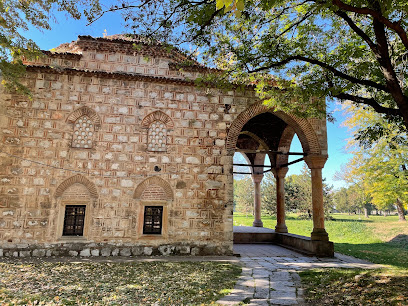
King Milan Square
Discover the vibrant King Milan Square in Niš, a historical landmark blending culture, beauty, and local charm.
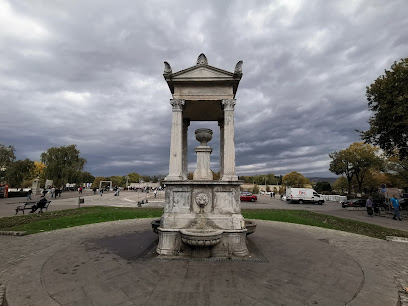
Skull Tower
Explore the poignant history of Skull Tower in Niš, Serbia, a local history museum that memorializes the sacrifices of the past.
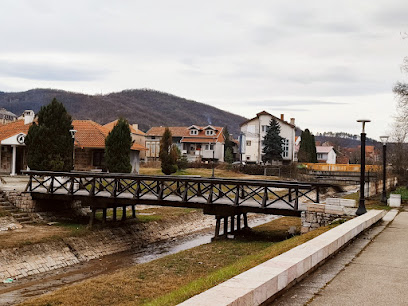
Park Bubanj
Discover the serene beauty and historical significance of Park Bubanj, a memorial park in Niš dedicated to honoring war victims and celebrating nature.
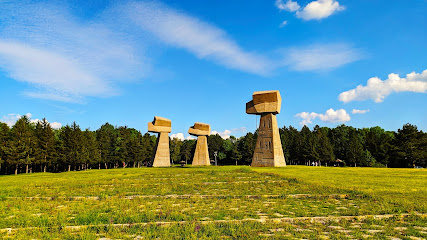
Mediana
Explore Mediana, an archaeological gem in Niš, Serbia, showcasing the grandeur of Roman civilization through ancient ruins and rich history.
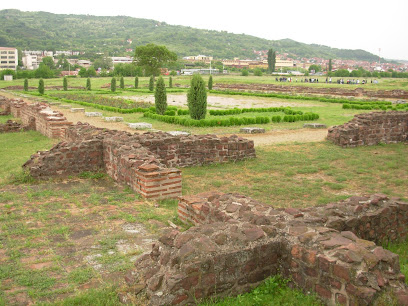
Stambol Gate of Nis Fortress
Discover the Stambol Gate of Niš Fortress, a historical marvel that captures the essence of Serbia's past and offers stunning views of the landscape.
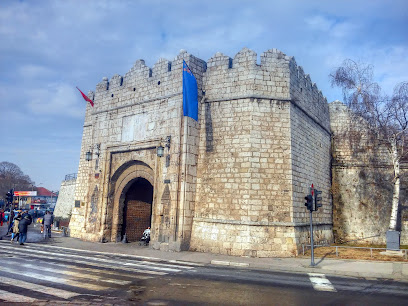
Stevan Sremac and Kalča Monument
Explore the Stevan Sremac and Kalča Monument in Niš, a remarkable tribute to Serbian literature and culture, showcasing the city's rich heritage.
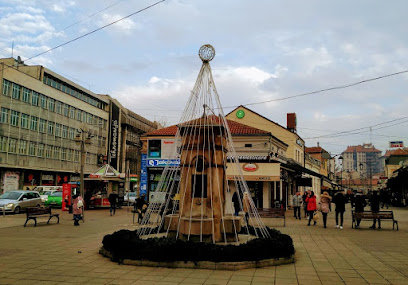
Monument to the Liberators of Niš
Explore the Monument to the Liberators of Niš, a stunning tribute to freedom and resilience in the heart of Serbia's historic city.
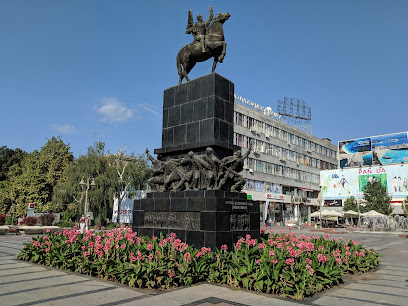
Kralj Aleksandar
Discover Kralj Aleksandar Square in Niš, a captivating open-air museum showcasing history and culture through its stunning architecture and vibrant atmosphere.
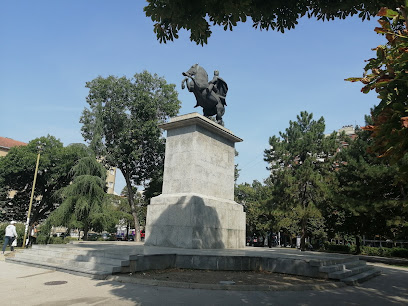
Византијска улица у Нишкој тврђави
Experience the rich history and architectural beauty of Byzantine Street in Niš, a captivating archaeological site that tells the stories of ancient civilizations.
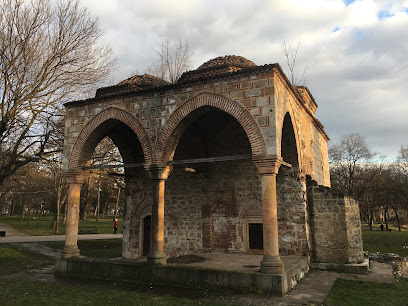
Unmissable attractions to see
King Milan Square
Discover the vibrant heart of Niš at King Milan Square, where history meets modern life in a picturesque Serbian setting.
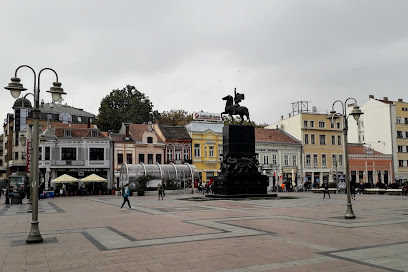
Skull Tower
Discover the haunting history of the Skull Tower in Niš, a local history museum showcasing the resilience of Serbian heritage against Ottoman rule.
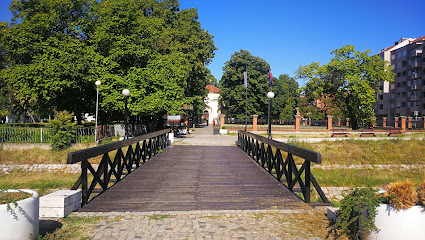
Park Bubanj
Discover the serene beauty of Park Bubanj in Niš, a memorial park dedicated to history, reflection, and recreation amid lush landscapes.
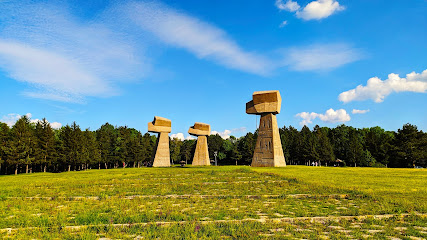
Republic Square
Explore Republic Square, a vibrant park in Niš, Serbia, blending history, culture, and natural beauty for an unforgettable experience.
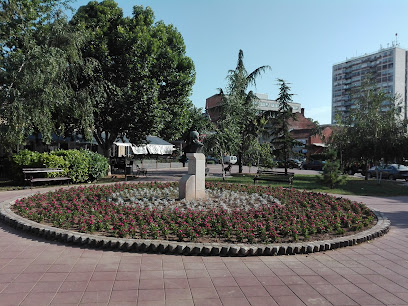
Stambol Gate of Nis Fortress
Explore the Stambol Gate of Nis Fortress, a historical masterpiece that reveals the rich heritage of Niš and the Ottoman Empire.
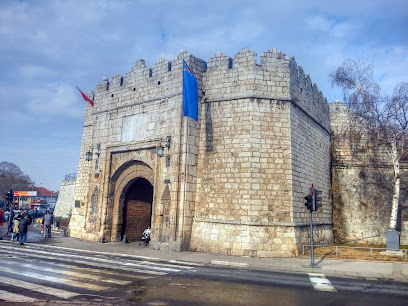
Monument to the Liberators of Niš
Explore the Monument to the Liberators of Niš, an iconic historical landmark celebrating bravery and resilience in the heart of Serbia.
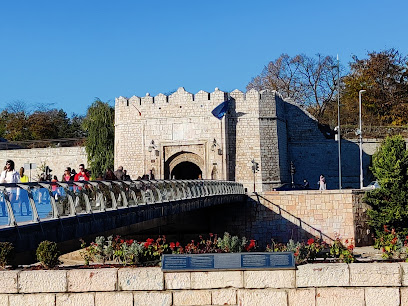
Византијска улица у Нишкој тврђави
Discover the rich history and stunning architecture of the Byzantine Street in Niš, an archaeological site that brings the past to life.
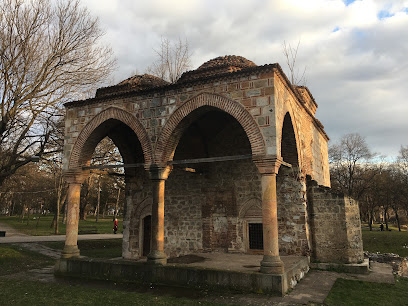
Essential places to dine
Kod Rajka
Experience authentic Serbian cuisine at Kod Rajka in Niš – where tradition meets flavor in every dish.
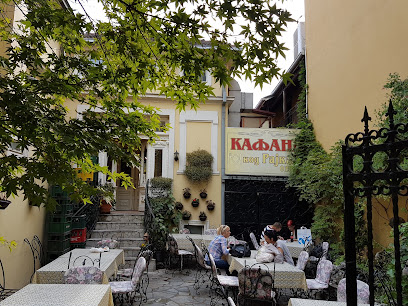
Irish Pub Crazy Horse
Discover the vibrant atmosphere and authentic flavors at Irish Pub Crazy Horse - your go-to spot for relaxation in Niš.
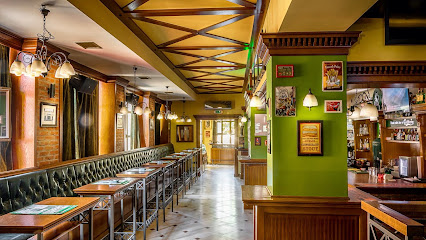
Kafana Mrak
Experience authentic Serbian barbecue at Kafana Mrak in Niš – where tradition meets flavor in a cozy atmosphere.
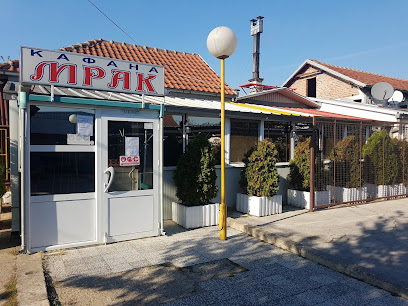
Nišlijska Mehana
Savor authentic Serbian flavors at Nišlijska Mehana, where every dish tells a story of tradition and warmth.
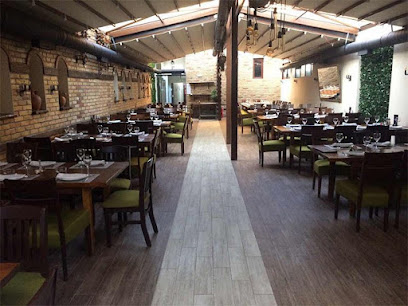
Kafana Meze
Experience authentic Serbian cuisine at Kafana Meze in Niš - where every dish tells a story and every visit feels like home.
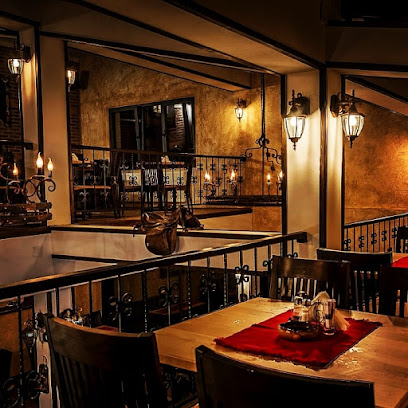
Stambolijski
Experience the rich flavors of Serbia at Stambolijski in Niš - where tradition meets modern dining.
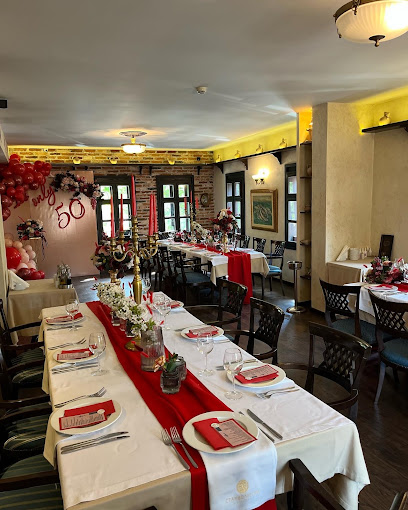
Komuna Gastro Bar
Discover the culinary charm of Komuna Gastro Bar in Niš—where local flavors meet modern dining in a vibrant atmosphere.
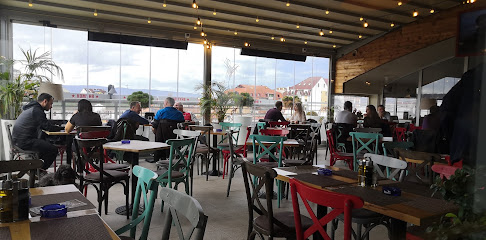
Restoran Gusar
Experience authentic Serbian cuisine at Restoran Gusar in Niš – a culinary gem offering delicious dishes in a warm atmosphere.
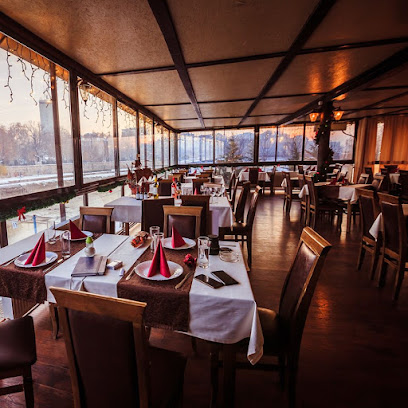
Restaurant Riblja konoba
Experience authentic Serbian seafood at Riblja Konoba in Niš – where every dish tells a story of freshness and flavor.
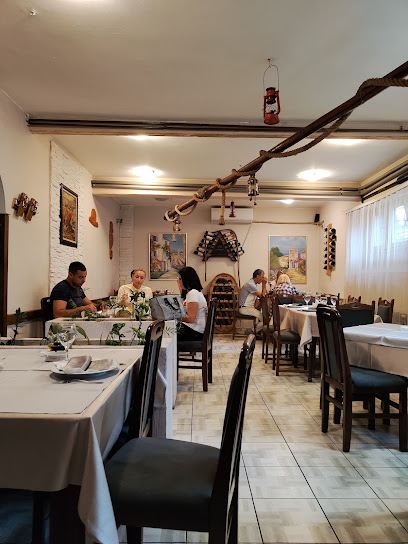
Mascaron
Experience authentic Serbian cuisine and exquisite wines at Mascaron, a delightful restaurant and wine bar in Niš.
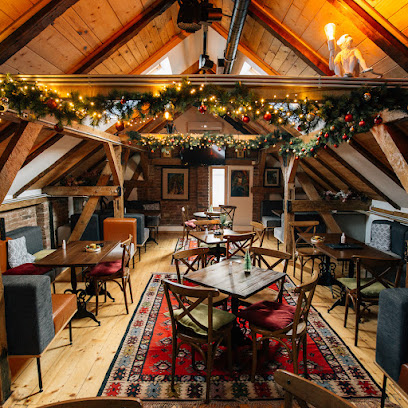
Markets, malls and hidden boutiques
Forum
Explore the Forum Shopping Center in Niš for a unique blend of shopping, dining, and entertainment in a vibrant atmosphere.
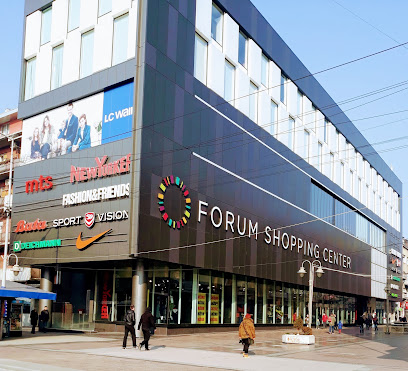
Extreme Intimo Stop Shop Niš
Explore the vibrant fabric of local fashion at Extreme Intimo Stop Shop Niš, where comfort meets style in high-quality intimate apparel.
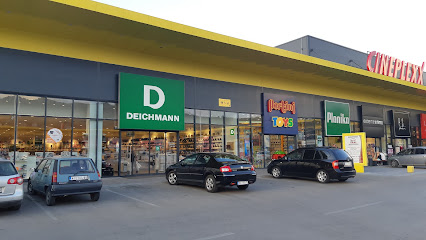
Kalča
Discover the vibrant shopping experience at Kalča, Niš's premier shopping mall with a mix of local and international brands, dining, and entertainment.
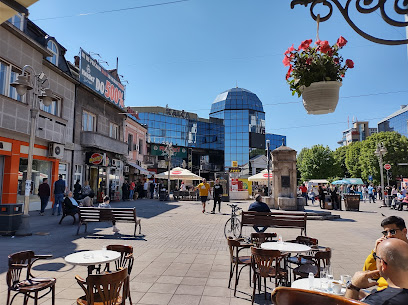
NIS Petrol - Francuska
Discover convenience at NIS Petrol - Francuska, your go-to gas station and store in the heart of Belgrade's historic Stari Grad.
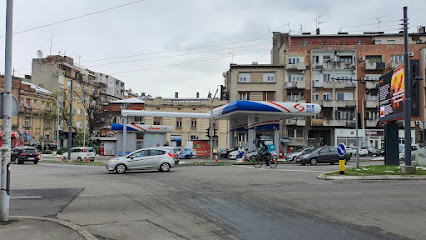
Podzemni prolaz Nis
Discover unique shopping experiences and a vibrant dining scene at Podzemni prolaz Nis, the heart of Niš's underground shopping culture.
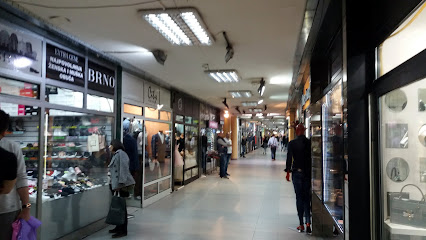
Tehnomedia
Explore the finest selection of home appliances at Tehnomedia in Niš, where quality meets affordability for every household need.

Shoppingland
Discover unique gifts and local crafts at Shoppingland in Niš, a must-visit destination for every traveler seeking memorable souvenirs.
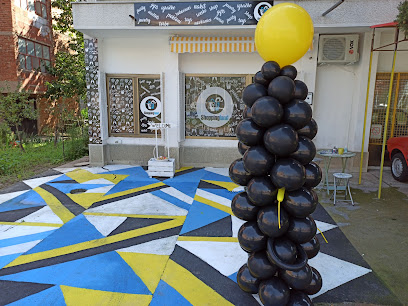
Serbian Souvenirs
Explore authentic Serbian craftsmanship at Serbian Souvenirs, a charming store in Niš offering a diverse range of unique gifts and handcrafted treasures.
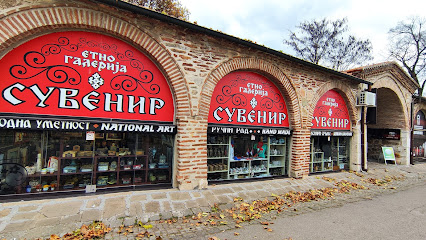
Grad Niš
Discover unique Serbian crafts and local delicacies at Grad Niš, a central shopping destination offering a taste of Niš's rich culture.
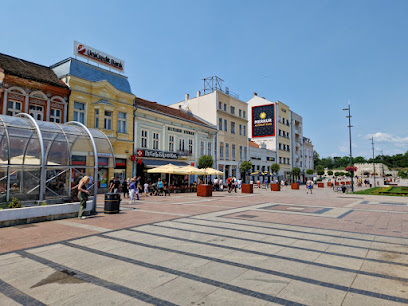
Essential bars & hidden hideouts
Irish Pub Crazy Horse
Discover the vibrant atmosphere of Irish Pub Crazy Horse, where authentic cuisine meets lively entertainment in the heart of Niš.
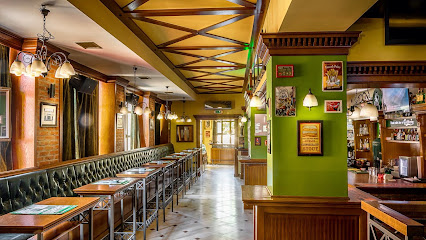
Pleasure Čair
Experience the authentic flavors of Serbia at Pleasure Čair, a culinary gem in Niš offering a warm atmosphere and exquisite local dishes.
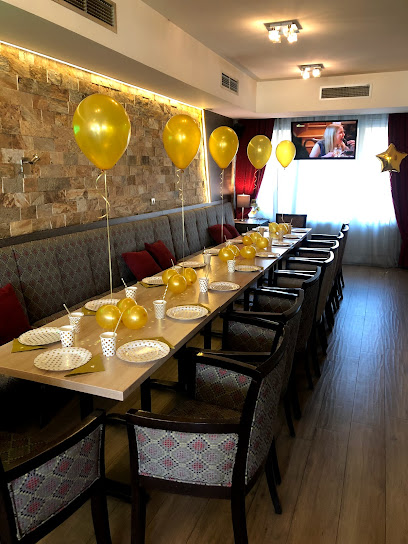
Pleasure
Experience the vibrant flavors of Niš at Pleasure, a charming restaurant offering a delightful mix of traditional and international cuisine.
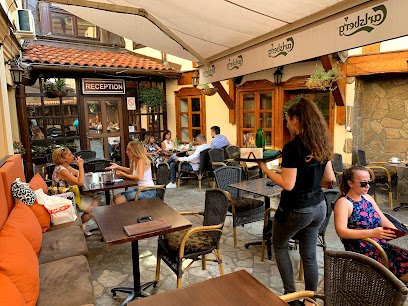
Wurst Platz Bar
Discover the vibrant atmosphere at Wurst Platz Bar, a top destination in Belgrade for beer, local cuisine, and live entertainment.
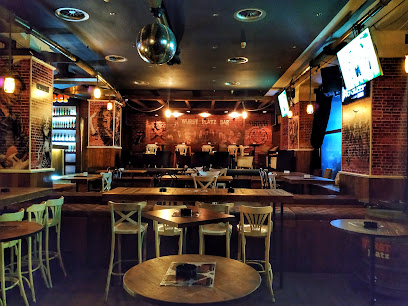
Beer Garden
Discover the heart of Niš's nightlife at Beer Garden, a lively pub with a diverse beer selection and an inviting atmosphere.
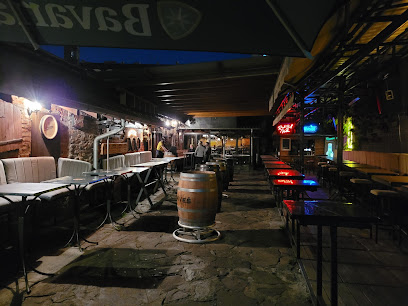
Labeerint
Experience the rich flavors of Serbian cuisine at Labeerint, Niš's premier grill restaurant, where every dish tells a story of tradition.
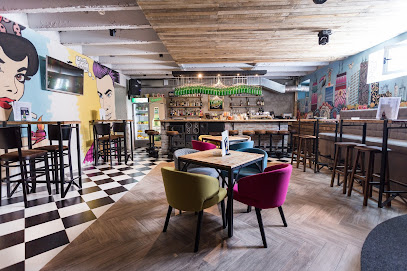
Кафе Клуб Салоон
Experience the charm of Niš at Café Club Saloon, where local flavors and a warm atmosphere await every visitor.
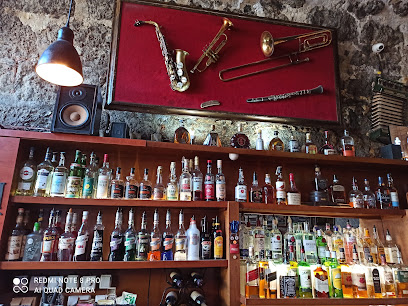
Poseidon
Discover the charm of Poseidon, a cozy bar in Niš offering delightful drinks and a warm atmosphere for tourists to unwind and socialize.
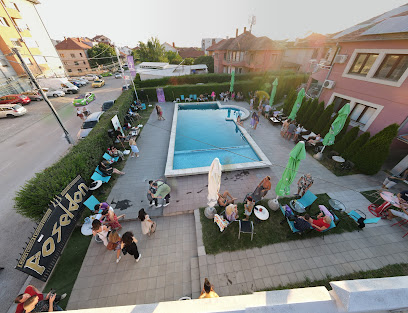
Detroit Bar
Experience the vibrant nightlife of Niš at Detroit Bar, where creative cocktails and local brews await in a cozy atmosphere.
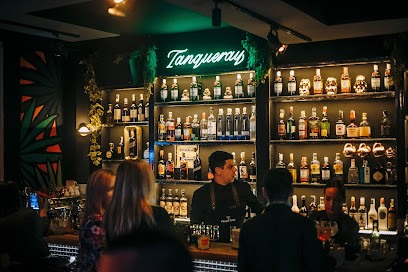
Bar Kod
Experience the vibrant culture of Niš at Bar Kod, where creativity meets exceptional cocktails in a lively art-filled atmosphere.
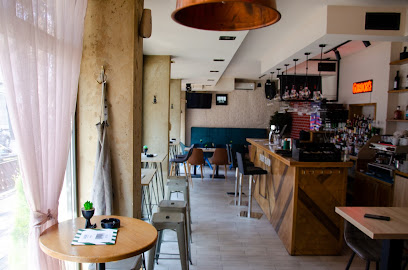
Local Phrases
-
- HelloЗдраво
[Zdravo] - GoodbyeДовиђења
[Doviđenja] - YesДа
[Da] - NoНе
[Ne] - Please/You're welcomeМолим
[Molim] - Thank youХвала
[Hvala] - Excuse me/SorryИзвините
[Izvinite] - How are you?Како сте?
[Kako ste?] - Fine. And you?Добро. А ви?
[Dobro. A vi?] - Do you speak English?Да ли говорите енглески?
[Da li govorite engleski?] - I don't understandНе разумем
[Ne razumem]
- HelloЗдраво
-
- I'd like to see the menu, pleaseЖелео/ла бих да видим мени, молим
[Želeo/la bih da vidim meni, molim] - I don't eat meatНе једем месо
[Ne jedem meso] - Cheers!Живели!
[Živeli!] - I would like to pay, pleaseЖелео/ла бих да платим, молим
[Želeo/la bih da platim, molim]
- I'd like to see the menu, pleaseЖелео/ла бих да видим мени, молим
-
- Help!Упомоћ!
[Upomoć!] - Go away!Иди одавде!
[Idi odavde!] - Call the Police!Позовите полицију!
[Pozovite policiju!] - Call a doctor!Позовите лекара!
[Pozovite lekara!] - I'm lostИзгубио/ла сам се
[Izgubio/la sam se] - I'm illБолестан/на сам
[Bolestan/na sam]
- Help!Упомоћ!
-
- I'd like to buy...Желео/ла бих да купим...
[Želeo/la bih da kupim...] - I'm just lookingСамо гледам
[Samo gledam] - How much is it?Колико кошта?
[Koliko košta?] - That's too expensiveТо је превише скупо
[To je previše skupo] - Can you lower the price?Можете ли спустити цену?
[Možete li spustiti cenu?]
- I'd like to buy...Желео/ла бих да купим...
-
- What time is it?Колико је сати?
[Koliko je sati?] - It's one o'clockЈедан сат је
[Jedan sat je] - Half past (10)Пола (10)
[Pola (10)] - MorningЈутро
[Jutro] - AfternoonПоподне
[Popodne] - EveningВече
[Veče] - YesterdayЈуче
[Juče] - TodayДанас
[Danas] - TomorrowСутра
[Sutra] - 1Један
[Jedan] - 2Два
[Dva] - 3Три
[Tri] - 4Четири
[Četiri] - 5Пет
[Pet] - 6Шест
[Šest] - 7Седам
[Sedam] - 8Осам
[Osam] - 9Девет
[Devet] - 10Десет
[Deset]
- What time is it?Колико је сати?
-
- Where's a/the...?Где је...?
[Gde je...?] - What's the address?Која је адреса?
[Koja je adresa?] - Can you show me (on the map)?Можете ли ми показати (на мапи)?
[Možete li mi pokazati (na mapi)?] - When's the next (bus)?Кад је следећи (аутобус)?
[Kad je sledeći (autobus)?] - A ticket (to ....)Једну карту (за ....)
[Jednu kartu (za ....)]
- Where's a/the...?Где је...?
History of Stari Grad
-
Stari Grad, or the Old Town, is situated in a region that has been inhabited since the prehistoric era. Archaeological findings indicate that this area was a significant settlement during the Roman period, known as Naissus, which was a prominent hub of commerce and military activity. The remains of Roman architecture, such as the Mediana complex, highlight the importance of Niš as a key city in the Roman Empire.
-
During the medieval period, Stari Grad became a pivotal center for various cultures and empires that ruled the region, including the Byzantine and Serbian Empires. The neighborhood was home to numerous churches and monasteries, reflecting the religious and cultural dynamics of the time. The Church of St. Nicholas, dating back to the 12th century, stands as a testament to the area's medieval architecture and spiritual heritage.
-
The Ottoman conquest in the 15th century brought significant changes to Stari Grad. The neighborhood transformed into a multicultural center where various ethnic groups coexisted. The construction of mosques, such as the Sultan Mehmet Pasha Mosque, alongside Christian churches illustrates the architectural diversity introduced during this period. Stari Grad also became a crucial administrative center within the Ottoman Empire, serving as a hub for trade and governance.
-
The 20th century was marked by upheaval for Stari Grad, particularly during the Balkan Wars and World War I. The neighborhood witnessed significant destruction and loss, impacting its cultural landscape. After the wars, the area began to rebuild, and efforts to preserve its historical sites became a priority, ensuring that the rich history of Stari Grad was not forgotten.
-
In recent decades, Stari Grad has experienced a renaissance as Niš has embraced its historical and cultural roots. The revitalization of historical sites, such as the Niš Fortress and the iconic Tinkers Alley, has made the neighborhood a focal point for tourism. Festivals and cultural events frequently take place, celebrating the vibrant heritage of Stari Grad and promoting local crafts and traditions.
Stari Grad Essentials
-
Stari Grad is centrally located in Niš, easily accessible by various means of transportation. From the Niš Airport, you can take a taxi or a pre-arranged shuttle to the city center, which typically takes about 20 minutes. If you're traveling from other neighborhoods in Niš, local buses run frequently to Stari Grad, with several lines connecting the area. Taxis are also readily available throughout the city.
-
Stari Grad is pedestrian-friendly, making it easy to explore on foot. For longer distances, local buses and taxis are convenient options. Bike rentals are increasingly available, allowing you to navigate the area at your own pace. Be aware that some streets may be cobblestone, so wear comfortable shoes.
-
Stari Grad is generally safe for tourists, but standard precautions should always be taken. Avoid walking alone late at night in poorly lit areas, especially around the outskirts of the neighborhood. While incidents are rare, petty crime such as pickpocketing can occur in crowded places. Stay vigilant near tourist hotspots.
-
In case of an emergency, dial 192 for police and 194 for ambulance services. The local hospitals are equipped to handle emergencies, and it is advisable to have travel insurance that covers medical needs. Pharmacies are available throughout Stari Grad for minor health issues.
-
Fashion: Do wear comfortable and respectful clothing, especially when visiting religious sites. Don't wear beachwear or overly revealing outfits in public. Religion: Do be respectful of local customs; when entering churches, cover your shoulders. Public Transport: Do offer your seat to elderly passengers, and don't eat or drink on public buses. Greetings: Do greet with a handshake and maintain eye contact. Eating & Drinking: Do try local dishes and accept invitations to share a meal. Don't waste food or refuse offerings, as this may be seen as impolite.
-
To experience Stari Grad like a local, visit the bustling market in the morning for fresh produce and unique local products. Engage in conversations with shopkeepers and locals to learn more about the city's history and culture. Don't miss the opportunity to try traditional Serbian coffee in one of the local cafes and take a leisurely stroll through the historic streets to soak in the atmosphere.
Nearby Cities to Stari Grad
-
Things To Do in Podujevo
-
Things To Do in Kamenica
-
Things To Do in Vushtrri
-
Things To Do in Mitrovica
-
Things To Do in Gjilan
-
Things To Do in Kraljevo
-
Things To Do in Kragujevac
-
Things To Do in Shtime
-
Things To Do in Ferizaj
-
Things To Do in Peja
-
Things To Do in Prizren
-
Things To Do in Gjakova
-
Things To Do in Drobeta-Turnu Severin
-
Things To Do in Smederevo
-
Things To Do in Bajram Curri











